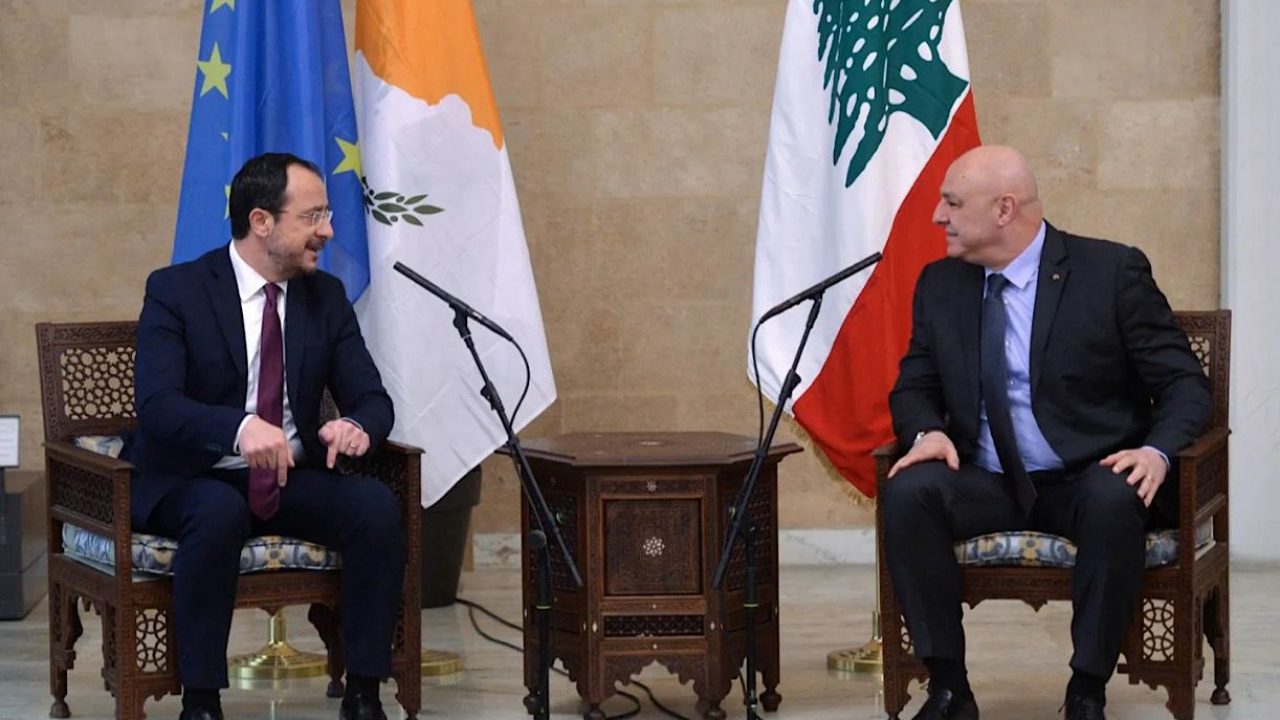Lebanese President Joseph Aoun’s efforts to expand relations with Cyprus are already paying diplomatic dividends, and judging from the reaction of Cypriot President Nikos Christodoulides, significant economic gains could follow in short order. During a recent exchange, Christodoulides proactively proposed the idea of Cyprus supplying electricity to Lebanon, and Aoun responded positively, later tasking Energy
Minister Joseph Saddi with following up on the matter.
International energy expert Roudi Baroudi lauded the work by both heads of state, describing it as a critical first step toward alleviating Lebanon’s longstanding electricity crisis. He emphasized the importance of embracing such regional partnerships as Lebanon works to stabilize and modernize its power infrastructure. The timing is also noteworthy, he explained, as the announcement comes in parallel with the resumption of maritime border demarcation talks between the two nations.
Baroudi also commended President Aoun’s strategic focus on the energy file, noting that prioritizing energy reform is essential for economic recovery and improving living standards for Lebanese citizens.
“For many, many reasons – economic, diplomatic, security, social, etc. – this is one of Lebanon’s most
important bilateral relationships,” he said, “but historically, it’s often been taken for granted and not
given sufficient attention by either government. Obviously, President Aoun recognizes the enormous
strategic value of stronger ties, which can’t help but to benefit both countries, and President
Christodoulides clearly agrees.”
The proposed electricity import plan would see Lebanon receive between 150 and 300 megawatts of power in phased stages over the next one to two years. This timeline aligns with Cyprus’ own plan to start producing electricity from natural gas, in particular from the Kronos Field, which is jointly operated by Italy’s ENI and France’s TotalEnergies. Baroudi pointed out that this plan offers a cost-effective and geographically advantageous solution, as Kronos is just 60 kilometers from Egypt’s Zohr Field, which is known for its low extraction costs.
Baroudi also highlighted Cyprus’ developing energy infrastructure. The bulk of its power is supplied by the Electricity Authority of Cyprus (EAC), which operates three thermal plants (Moni, Vassilikos, and Dhekelia, all on the south coast) that collectively produce approximately 1,600MW. It also distributes a small (150-200MW) but growing amount of power generated by private operators using wind, solar, and other renewables. Lebanon could potentially tap into this supply at a much lower cost than its current domestic production, especially once Cyprus begins utilizing its offshore gas reserves for power generation, with Block 6 scheduled to come online in 2026.
Going forward, Baroudi urged the Lebanese government to act swiftly in establishing the necessary regulatory and reform frameworks to facilitate this cross-border electricity arrangement. He stressed that the Vassilikos plant was being expanded to make use of natural gas, adding that a pipeline linked to Cyprus’ own offshore fields should be in place in 2026; this would create a power surplus which could then be exported. A regasification plant is also under construction, allowing for phased-in increases inoutput and exports, but it is unclear whether this can be operational before 2027. He also recommended that a full economic feasibility study be conducted to assess procurement costs and long-term benefits.
Baroudi concluded by reiterating the importance of Lebanon also continuing its efforts to connect its grid
with the Syrian network for additional support – particularly via the Deir Nbouh station near Zgharta and the Ksara plant in the Bekaa Valley.


